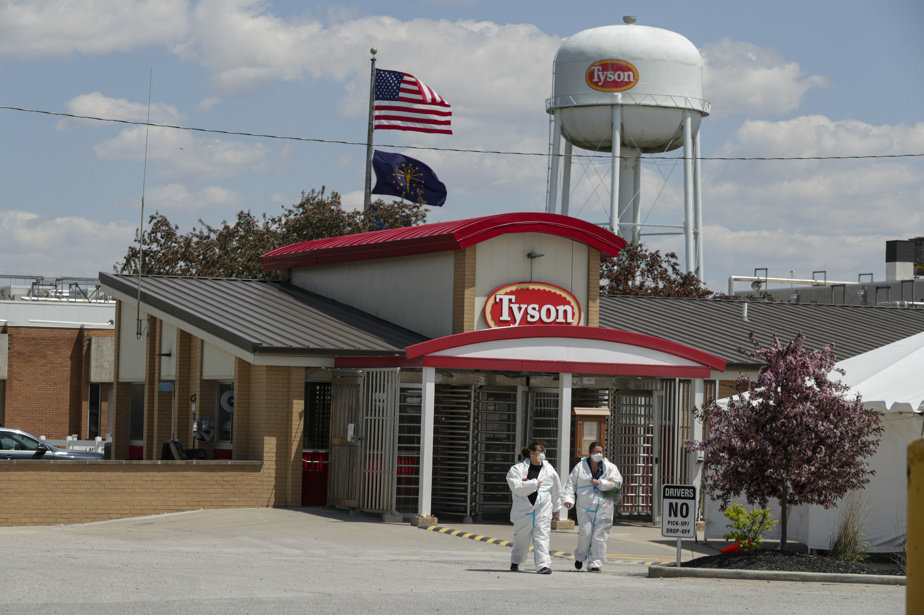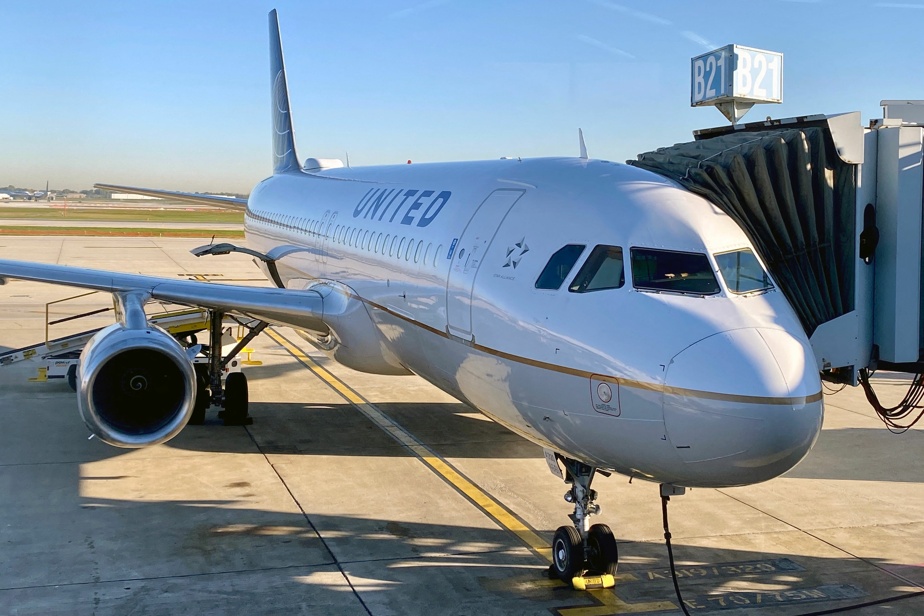(New York) In the air or in slaughterhouses, US carriers United Airlines and Tyson Foods have requested that their employees be vaccinated against COVID-19. They claim it works, paving the way for the vaccination requirements that the US government plans for any company with more than 100 employees.
In United, where US-based employees had until Monday to provide proof of vaccination, we reviewed: 99.5% of those who did not request a medical or religious exemption are now vaccinated.
The company’s president, Scott Kirby, has made it a business, suggesting in January that the vaccine could be imposed on his employees.
He achieved this in early August, giving pilots, flight attendants, and ground staff until September 27 to upload proof of their vaccination. Otherwise, they will be separated.
The company was preparing Tuesday to lay off 593 people who had not reported their vaccination status.
It saw that number drop to 320 employees on Thursday after some latecomers downloaded the appropriate documents. United said the number could drop further as workers are called in for talks about layoffs.
“Our vaccination policy continues to prove that this requires [le vaccin] operate,” the company commented.
Immunization rate jump
At meat giant Tyson Foods, which saw its activities severely disrupted at the start of the pandemic due to outbreaks of contamination, all employees must be vaccinated at 1He is November.

PHOTO MICHAEL CONROY, Associated Press
Tyson Foods Factory in Logansport, Indiana
They were less than half who got vaccinated when this new policy was announced in early August.
On Thursday, a month before the deadline, 91% had received at least one dose of the vaccine, the company said.
Other groups, such as Morgan Stanley, oil company Chevron or technology giant Microsoft, have asked all or part of their teams to provide proof of their vaccination.
But these are often office workers or have to travel, not people who work on channels or in direct contact with customers.
According to the US federal agency responsible for enforcing laws against workplace discrimination (EEOC), employers have the right to require their employees to go to their workplace for vaccinations, with exceptions for medical reasons or religious opposition.
President Joe Biden signed an executive order in early September making vaccination mandatory for federal employees, who have until November 22 to comply.
In New York state, where caregivers must be vaccinated since Monday or risk seeing their paychecks on hold and the risk of getting laid off, that was the case for 87% of them on Wednesday.
In New York itself, where teachers theoretically have until Monday to receive the vaccine, 91% of them have already received the vaccine on Tuesday.
frightening tensions
Joe Biden also ordered the Department of Labor, in the coming weeks, to introduce a duty to vaccinate or take a weekly screening test at companies with more than 100 employees. Details have not yet been announced.
And some are already against it, like Republican parliamentarians Claudia Tenney and Jim Banks who introduced a bill Thursday that would ban the administration from making such rules.
Employees have initiated legal proceedings in several US states.
The union that represents 14,000 American Airlines pilots has asked for a special exemption for pilots, noting in particular that some of them fear the vaccine side effects could end their careers.
Nearly two-thirds of large business leaders surveyed support the government’s plan, but more than half are concerned about how they will be able to implement it, according to a Conference Board poll released Tuesday.
Laurie Esposito Murray, of the Conference Board, noted that “the government should proceed with caution given the intensity of opposition felt by a quarter of businessmen and the anticipated difficulties in implementation.”
She warned that if the guidelines were not clear and the target was not achieved, it could “lead to stress in the workplace rather than a high vaccination rate”.

“Extreme twitteraholic. Passionate travel nerd. Hardcore zombie trailblazer. Web fanatic. Evil bacon geek.”

